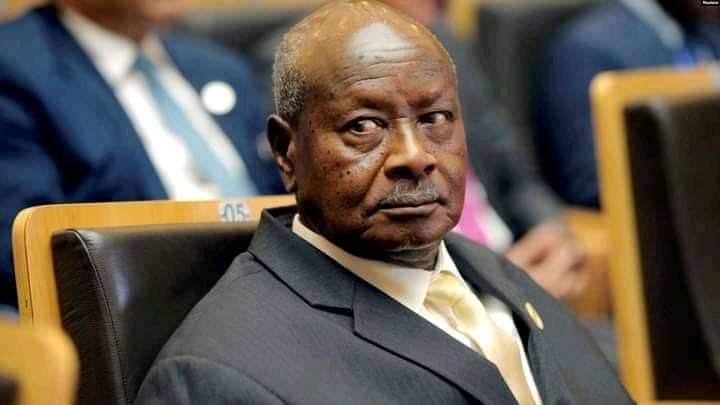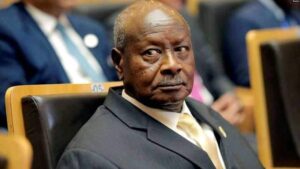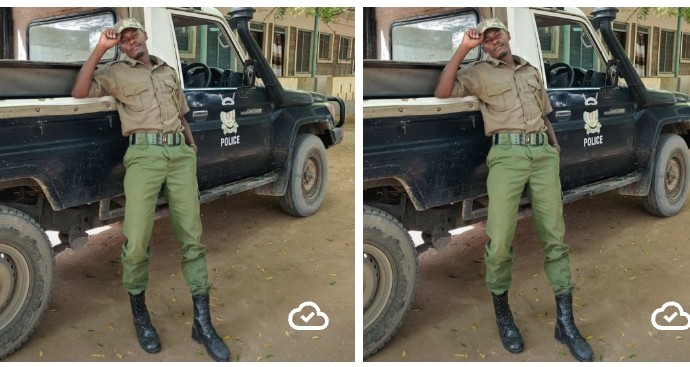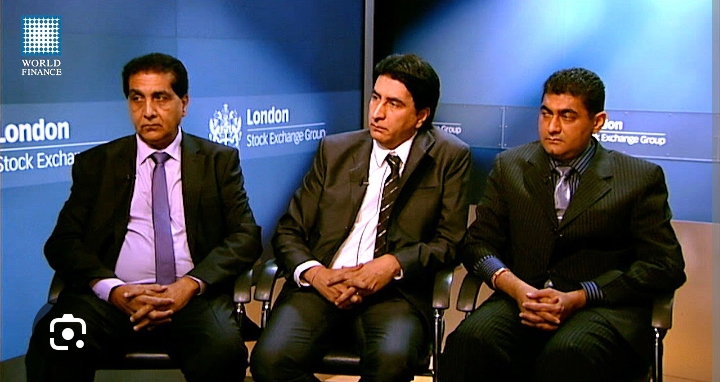Exploring Why Most African Presidents are Dictators

Exploring Why Most African Presidents are Dictators
Welcome to our in-depth exploration of why most African presidents are considered dictators. This issue has been a topic of discussion for many years, and it’s important to understand the underlying reasons why this trend seems to persist. In this article, we will examine the historical, cultural, political, and economic factors that contribute to the emergence of authoritarian leadership in Africa. By the end of this article, you will have a clearer understanding of this complex issue and potential solutions for promoting democratic governance and accountable leadership in Africa.
Key Takeaways:
- The prevalence of dictatorial leadership among African presidents is a complex issue with multiple underlying factors.
- Factors such as historical legacies, cultural dynamics, political structures, economic factors, and regional dynamics play a role in the emergence of authoritarian leaders in Africa.
- Challenges to democracy and civil society can amplify this trend.
- International actors can either enable or challenge authoritarian leadership in Africa.
- Promoting democratic governance and accountable leadership is crucial for improving the lives of African citizens.
Historical Context of African Leadership
The history of African leadership has been shaped by a complex web of factors, including colonialism, slavery, and the struggle for independence. These historical events have had a profound impact on the continent’s political landscape, influencing the emergence of authoritarian regimes and dictatorial leaders.

At the heart of Africa’s leadership struggles is the legacy of colonialism. The arbitrary borders drawn by European powers divided ethnic communities and created artificial nations that lacked a sense of unity and collective identity. This legacy has made the task of nation-building and democratic governance challenging for many African states.
| Impact of Colonialism on African Leadership | Impact of Independence Struggle on African Leadership |
|---|---|
|
|
Furthermore, the struggle for independence and liberation in Africa, while noble, also produced a generation of leaders who viewed themselves as the sole custodians of national power and sovereignty. These leaders often concentrated power in their hands and created centralized, one-party arrangements that suppressed opposition and dissent.
The result has been a political culture that is often hostile to democratic ideals and popular participation. In many African countries, leadership transitions have been marred by violence and political instability, further hindering the growth of democracy and promoting the persistence of dictatorial regimes.
“The struggle for independence and liberation in Africa produced a generation of leaders who viewed themselves as the sole custodians of national power and sovereignty.”
Despite these challenges, there have been notable exceptions. Countries like Botswana, Mauritius, and Ghana have managed to build stable and democratic political systems despite the odds. However, the road to democracy and accountable governance in Africa remains long and arduous, with many obstacles and pitfalls along the way.
Cultural Influences on Political Power
African political power structures are heavily influenced by cultural dynamics. Understanding the role of cultural influences on political power is crucial in comprehending why most African presidents are considered dictators. One major aspect of cultural dynamics is the traditional leadership model.
Many African countries have a traditional leadership model that is based on the concept of a supreme ruler or king. These traditional rulers hold considerable power and influence, and their authority is often seen as divinely ordained. When modern governments were established, these traditional rulers often retained significant power, with the president being seen as an extension of this traditional model of leadership.
Cultural norms also play a role in shaping political power structures in Africa. For example, in many African cultures, decision-making is done through consensus-building, and individual opinions are not valued as highly as group opinions. This can lead to a situation where dissenting voices are marginalized, leading to a lack of accountability.
Tribalism is another important cultural influence on political power in Africa. Many African countries have numerous ethnic groups, and politicians often use ethnic identity to gain support. This can lead to a situation where certain ethnic groups are favored over others, and political power becomes concentrated in the hands of a few.
Overall, cultural influences on political power in Africa are complex and multifaceted. They can contribute to the emergence of dictators, but they can also provide a foundation for democratic governance and accountable leadership.
Political Structures in African Countries
African countries have experienced a range of political structures, from authoritarian regimes to democratic systems. However, the prevalence of dictatorial leaders raises questions about the effectiveness of political structures in promoting accountable leadership and good governance.
Weak institutions, lack of checks and balances, and the concentration of power are some of the factors that contribute to the emergence of dictators in African countries. In many cases, the constitution establishes a strong presidency with few limits on executive power, creating an environment where leaders can act with impunity.
The concentration of power in the hands of a single individual or party can also lead to corruption and the abuse of power. In countries where the opposition is weak, the media is limited, and civil society is repressed, there is little to challenge the regime’s grip on power.
The African Union
The African Union (AU) was established in 2002 to promote democracy, good governance, and human rights on the continent. However, the organization has been criticized for its failure to hold member states accountable for human rights abuses and undemocratic practices.
The AU’s policy of non-interference in the internal affairs of member states has limited its ability to intervene in cases of political repression and abuse of power. In addition, the organization’s reliance on voluntary compliance by member states means that it has little power to enforce its decisions.
Case Study: Zimbabwe
Zimbabwe provides a case study of the impact of political structures on democratic governance. Since gaining independence in 1980, the country has been ruled by the Zimbabwe African National Union-Patriotic Front (ZANU-PF) party.
Under the leadership of President Robert Mugabe, the ZANU-PF government has been accused of human rights abuses, electoral fraud, and the suppression of the opposition and civil society. The concentration of power in the presidency, weak institutions, and limited checks and balances have enabled Mugabe’s regime to maintain its grip on power for over three decades.
| Key Factors Contributing to Dictatorship in Zimbabwe | Impact on Democracy and Governance |
|---|---|
| Concentration of power in the presidency | Little to no accountability for human rights abuses, election rigging, and the suppression of the opposition and civil society |
| Weak institutions and lack of checks and balances | Undermining of democratic institutions, including the judiciary and electoral commission |
| Suppression of the media and civil society | Limiting public debate, scrutiny and participation, while silencing critics and opposition leaders |
The case of Zimbabwe underscores the need for strong institutions, checks and balances, and vibrant civil society to promote democracy and good governance. Without these elements, political structures can become tools of repression, rather than instruments of progress and development.
Economic Factors and Authoritarianism
The economic landscape of a country can have a significant impact on the emergence of authoritarian leadership. Wealth inequality, resource dependency, and corruption are a few key economic factors that contribute to the prevalence of dictators in Africa.
According to a report by the World Bank, the richest 10% of the African population holds 70% of the continent’s wealth. The vast income inequality makes it easier for leaders to consolidate power and maintain control over resources.
Moreover, resource-rich countries are often plagued by the “resource curse,” where the abundance of natural resources can lead to corruption and a lack of accountability. In many African countries, resources such as oil, diamonds, and gold have fueled corruption, benefiting a small elite group at the expense of the wider population.
The lack of economic opportunities and rampant corruption often leads to civil unrest, which authoritarian leaders use as an excuse to consolidate power. By presenting themselves as strong leaders who can provide stability, they gain public support and legitimize their authoritarian rule.
“The absence of economic opportunities and the lack of accountability in resource-rich countries are a breeding ground for authoritarianism.”
| Country | GDP per capita (USD) | Corruption Perception Index (CPI) |
|---|---|---|
| Nigeria | 2,229 | 25 |
| Rwanda | 905 | 51 |
| South Africa | 6,082 | 44 |
The table above shows a comparison of GDP per capita and Corruption Perception Index (CPI) for Nigeria, Rwanda, and South Africa. Nigeria, a resource-rich country, has a lower GDP per capita and a lower CPI score, indicating high levels of corruption. In contrast, Rwanda, with a lower GDP per capita, has made strides in improving its CPI score by implementing anti-corruption measures.
In summary, economic factors such as wealth inequality, resource dependency, and corruption can create an environment that is conducive to authoritarian leadership. Addressing these challenges through measures such as promoting economic development and transparency can help reduce the prevalence of dictators in Africa.
Regional Dynamics and Power Politics
African politics is heavily influenced by regional dynamics and power politics. Countries within regions share cultural, economic, and political ties that often affect the behavior of their leaders. The competition for regional dominance and resources can also shape the leadership styles of African presidents.
The African Union (AU) is a regional organization that seeks to promote unity and cooperation among African countries. However, the AU is often criticized for being weak in dealing with regional conflicts and holding leaders accountable for their actions.
“The AU needs to be more proactive in addressing regional conflicts and holding leaders accountable for their actions. It’s time for African leaders to take ownership of the problems affecting the continent and work towards finding lasting solutions.”
– African analyst, John Okon
The East African Community (EAC) is another regional organization that consists of countries such as Kenya, Tanzania, and Uganda. The EAC has been successful in promoting regional integration and economic cooperation. However, the organization has been criticized for turning a blind eye to human rights abuses committed by some of its member states.
| Country | Human Rights Concerns |
|---|---|
| Tanzania | Crackdown on opposition parties and media |
| Uganda | Restrictions on freedom of expression and assembly |
| Kenya | Excessive use of force by security forces |
Regional organizations can also be used by African leaders to advance their own interests and exert influence over other countries. For example, the Southern African Development Community (SADC) has been accused of allowing Zimbabwean President Robert Mugabe to cling to power despite allegations of election rigging and human rights abuses in his country.
To promote democratic governance and accountable leadership in Africa, regional organizations must be strengthened and held accountable for their actions. The international community can also play a role in supporting these organizations and ensuring that they work towards the best interests of the African people.
Challenges to Democracy and Civil Society
Democracy and civil society face numerous challenges in African countries. These challenges contribute to the rise of dictators who manipulate the system to cling on to power. Political repression, limited freedom of expression, and human rights abuses are some of the major challenges affecting democracy in Africa
The media is also not free in many African countries, and journalists are often harassed, attacked, and imprisoned, limiting their ability to report on issues of governance and hold leaders accountable. Additionally, civil society organizations face restrictions, and their activities are often curtailed by the state.
“Without an independent civil society and a free press, democracy cannot survive.” -Nelson Mandela
In some countries, elections are marred by fraud, violence, and intimidation, making them less credible. In other cases, leaders manipulate the constitution to stay in power beyond their term limits, as seen in Burundi, Uganda, and Rwanda, among others. Such actions undermine the rule of law and democratic governance, leading to authoritarianism.
The lack of checks and balances on the executive branch of government also contributes to the erosion of democracy in Africa. In many cases, the judiciary and parliament are weak and lack independence, making them unable to hold the executive accountable. This concentration of power often leads to abuse and corruption.
Another challenge to democracy in Africa is the limited participation of women and minority groups in politics. Women’s rights, LGBTQ+ rights, and minority rights are often neglected or actively suppressed, depriving these groups of a voice in the political process.
Solutions to the Challenges
Addressing these challenges requires a concerted effort both domestically and internationally. African leaders must respect human rights, uphold the rule of law, and create an enabling environment for civil society to operate. Free and fair elections, independent media, and a strong judiciary are crucial for building a vibrant democracy.
The international community can also support democracy in Africa by providing technical assistance, promoting good governance, and applying pressure on leaders who violate human rights and democratic principles. Sanctions, travel bans, and freezing of assets can be imposed on leaders who refuse to uphold democratic values.
Ultimately, promoting democracy and civil society in Africa requires a sustained commitment from both African leaders and the international community. Only then can we hope to see a more democratic and accountable leadership emerge in Africa.
African Dictators: Case Studies
Examining specific case studies of African dictators provides insight into their rise to power, their methods of control, and the impact of their rule on their respective countries and the wider region.
Idi Amin
“I am the hero of Africa.” – Idi Amin
Idi Amin was the President of Uganda from 1971 to 1979. He came to power through a military coup and ruled with an iron fist, committing numerous human rights abuses and atrocities. Amin’s regime was characterized by political repression, corruption, and nepotism. During his rule, an estimated 500,000 people were killed. He was eventually removed from power in 1979, and fled to exile in Saudi Arabia where he remained until his death in 2003.
Robert Mugabe
“Only God who appointed me will remove me.” – Robert Mugabe
Robert Mugabe was the Prime Minister of Zimbabwe from 1980 to 1987 and then served as President until his ousting in 2017. He initially came to power through a negotiated settlement with the white minority government of Rhodesia, but soon faced criticism for his authoritarian style. Mugabe’s regime was characterized by corruption, electoral fraud, and human rights abuses. His land redistribution policies, aimed at correcting colonial land imbalances, were controversial and contributed to political and economic instability. His rule ended in 2017, after a military coup, and he died in 2019.
Teodoro Obiang Nguema Mbasogo
“I will work with all Equatorial Guineans, regardless of their political affiliations.” – Teodoro Obiang Nguema Mbasogo
Teodoro Obiang Nguema Mbasogo is the President of Equatorial Guinea, having taken power in a military coup in 1979. He has since been re-elected multiple times, often in elections that have been criticized for being neither free nor fair. Obiang’s regime is characterized by corruption, political repression, and human rights abuses. Despite being rich in oil, Equatorial Guinea has one of the lowest GDP per capita rates in Africa, with most citizens living in poverty.
Comparison of Case Studies
| Idi Amin | Robert Mugabe | Teodoro Obiang Nguema Mbasogo | |
|---|---|---|---|
| Years in Power | 1971-1979 | 1980-2017 | 1979-present |
| Method of Taking Power | Military Coup | Negotiated Settlement | Military Coup |
| Human Rights Abuses | 500,000 killed, political repression | Electoral fraud, human rights abuses | Political repression, human rights abuses |
| Economic Policies | N/A | Controversial land redistribution policies | Corruption, poverty despite oil wealth |
Examining these three case studies shows the stark similarities in the methods used by African dictators to gain and maintain power. Military coups, political repression, and human rights abuses are common themes. In addition, each of these leaders pursued policies that concentrated power and wealth in their own hands, often to the detriment of their citizens.
The Role of International Community
The behavior of African presidents is often influenced by the actions of the international community. As such, it is essential to evaluate the role of external actors in promoting democratic governance and accountable leadership in Africa.
The international community has a crucial role to play in ensuring that African presidents uphold the standards of democracy and human rights. Foreign aid can be used to incentivize governments to pursue democratic reforms and support civil society organizations that hold leaders accountable for their actions. Diplomacy also plays a key role in shaping the behavior of African leaders. Meetings and negotiations with foreign diplomats provide opportunities to discuss critical issues such as human rights and democratic governance, and to encourage leaders to adhere to global standards.
Regional and international organizations, such as the African Union and the United Nations, can also exert significant pressure on African leaders to uphold democratic principles. These organizations can deploy peacekeeping forces to countries experiencing political instability and can impose economic sanctions on leaders who fail to respect human rights and democratic norms.
However, the international community has also been criticized for enabling dictatorial behavior in Africa. In some cases, foreign actors have supported authoritarian leaders who provided strategic or economic benefits at the expense of democratic governance. International actors have also been accused of applying double standards, supporting democratic movements in some countries while ignoring or even endorsing authoritarian leaders in others.
“The international community must take a firm stance against dictators and support democratic movements in Africa. This requires a consistent approach that prioritizes democratic governance over strategic interests.”
Conclusion
In conclusion, the prevalence of dictatorial leadership among African presidents is a complex issue with multiple contributing factors. We have explored the historical context of African leadership and how it has influenced the emergence of dictators, as well as the cultural dynamics and political structures that contribute to their rise. Additionally, economic factors, regional power dynamics, and challenges to democracy and civil society have all played a role.
Despite these challenges, there are strategies and solutions that can be employed to promote accountable leadership and democratic governance in Africa. These include strengthening institutions, promoting transparency and accountability, protecting human rights, and fostering civil society. The international community also has a crucial role to play in supporting these efforts.
In order to break the cycle of dictatorial leadership and promote sustainable development and prosperity across Africa, it is essential that these efforts are sustained and supported over the long term. Only through persistent and committed action can we hope to see a future in which African presidents are truly accountable to their people and committed to democratic values.
FAQ
Why are most African presidents considered dictators?
Most African presidents are considered dictators due to a combination of historical, cultural, and political factors that contribute to the concentration of power, weak institutions, and limited checks and balances.
What is the historical context of African leadership?
African leadership has been influenced by colonial legacies, post-independence struggles, and historical events that have shaped the governance structures in the continent.
How do cultural influences contribute to political power in Africa?
Cultural dynamics such as traditional leadership models, cultural norms, and tribalism can contribute to the prevalence of dictatorial tendencies among African presidents.
What are the political structures in African countries?
Political systems in many African countries are characterized by weak institutions, lack of checks and balances, and the concentration of power, which can contribute to the emergence of dictatorial leaders.
How do economic factors play a role in the rise of dictators in Africa?
Economic factors such as wealth inequality, resource curse, and corruption can create an environment conducive to authoritarian leadership in Africa.
How do regional dynamics and power politics influence African presidents?
Regional power struggles, rivalries, and the influence of external actors can shape the behavior and leadership styles of African presidents.
What are the challenges faced by democracy and civil society in African countries?
Democracy and civil society in Africa face challenges such as political repression, limited freedom of expression, and human rights abuses, which contribute to the rise of dictators.
Can you provide some case studies of African dictators?
We will examine specific case studies of African dictators, highlighting their rise to power, methods of control, and the impact of their rule on their respective countries and the wider region.
What is the role of the international community in relation to African presidents?
The international community plays a role in either enabling or challenging the behavior of African presidents through foreign aid, diplomacy, and the involvement of regional and international organizations.
What is the conclusion regarding why most African presidents are considered dictators?
In conclusion, the prevalence of dictatorial tendencies among African presidents is a complex issue influenced by historical, cultural, political, economic, and regional factors. Strategies and solutions for promoting democratic governance and accountable leadership in Africa are crucial for positive change.




